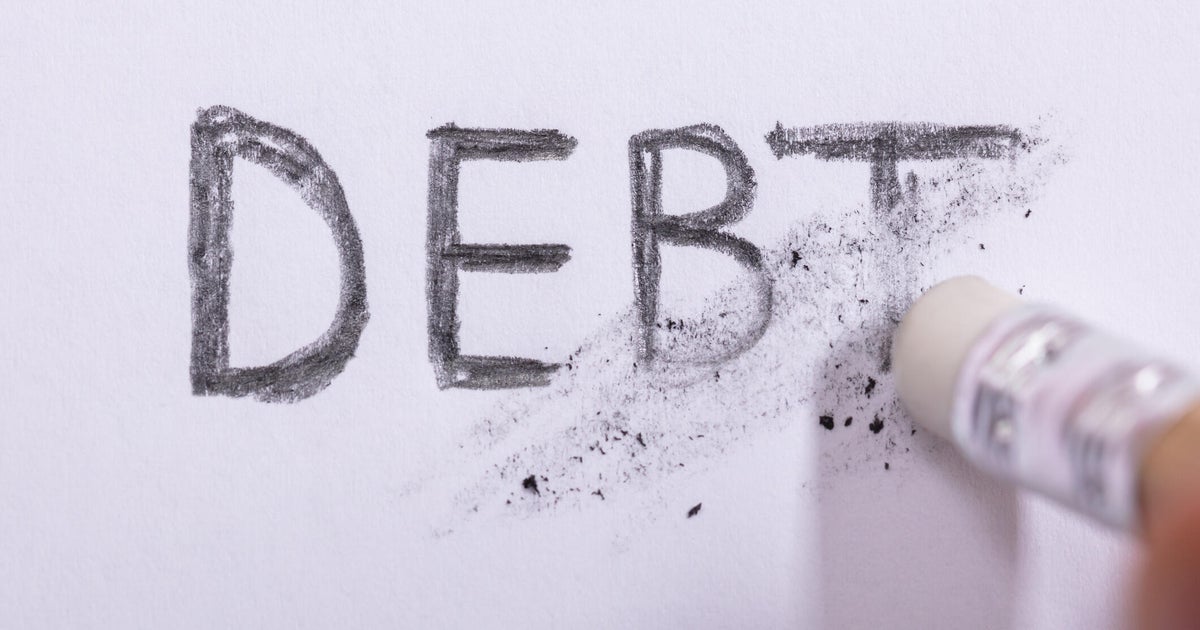How to get out of debt fast, according to experts
Being in debt can be both financially and emotionally draining. Especially when faced with high-interest debt, like many types of credit card debt, you can face a spiraling situation, where interest makes your balance grow faster than you can pay it off. And in this inflationary environment, debt is becoming all too common.
From the second quarter to third quarter of 2023 alone, credit card debt in the U.S. rose $48 billion to reach $1.08 trillion, a 4.7% quarterly increase, according to the Federal Reserve Bank of New York. Overall debt delinquency rates also went up in Q3 2023, finds the New York Fed.
Not all debt is necessarily bad, such as if you have a low-interest mortgage. Paying that off fast might not be in your best interest, such as if you can get a better return by investing or even just earning interest in a high-yield savings account on any money that would otherwise go toward paying off your house. But if you have high-interest debt, where you're losing money the longer you wait to pay it off, you likely want to treat this situation with urgency.
Keep in mind, however, that while you might set aggressive goals to quickly pay off your debt, it can still be a lengthy process.
"Anyone that offers to wave a magic wand and 'erase your debt fast,' generally has some ulterior motive. For many of us, getting out of debt takes time because it's a problem that has been compiling over a large amount of time," says Luis Andino, founder and CEO of Ditch, a debt management platform.
Still, if you're serious about getting out of debt, you can potentially do so faster than if, say, you just paid the minimums that you owe. Start by exploring some debt relief options here to learn more.
How to get out of debt fast, according to experts
If you want to pay off debt in a reasonable amount of time, consider the following four steps. Note that some of these steps take somewhat different approaches and incorporate different philosophies, so you might not be able to do all four, but you could pick the ones that seem like they'd work best for you.
Improve your cash flow
To get out of debt, the reality is that you need funds to pay it off. No matter what the interest rate is, or even if a lender agrees to waive some of your balance — but likely not all of your balance — you still need more money to get back to zero.
"Generally there are two ways to pay off debt when you're working with a tight budget: Increase income or decrease spending. Ultimately it's about freeing or creating new capital to be allocated towards interest bearing liabilities," says Andino. "This means that for most, the fastest way to pay off debt is to dramatically reduce spending, stick to spending only on necessities, and focus all excess income on your debt."
Selling your car, cutting down restaurant expenses and adding income from a side hustle are all possible ways to improve your cash flow.
Learn more ways to get out of debt here.
Prioritize the right debt
Some people prefer the debt snowball method to pay off debt, where you start with whatever account has the lowest balance and pay that off first to build momentum. From there, your efforts can snowball into tackling the largest debt. But from a mathematical perspective, that's generally not the fastest way to get out of debt.
"In many cases people will let high-interest debt accrue interest while paying down lower interest debt which reduces the impact of the payment on the overall balance," says Andino.
Debt psychology can come into play here, as some people like to see quick wins. But if you're able to stay the course with the debt avalanche method, where you pay off the balance with the highest interest rate first and work your way down, you can typically save more money overall. And because it often takes less money to pay off debt this way, you can get out of debt faster.
Note, however, that it's possible a small balance with a high interest rate is less important than a much higher balance with a slightly lower rate, especially if you face issues like being over your credit limit. You'd have to do the math to see what works for your situation.
"Having visibility into your money here is critical, not only on where you spend but also understanding how to best allocate those payments," adds Andino.
Break the cycle
Part of the problem with getting out of debt fast is that you might find yourself back in debt if you don't break the cycle of not having a safety net.
"You want to make sure that you stop the debt cycle. We often throw everything we have at debt, then get out of debt, but we have no savings. Then something comes up and we get in debt again. This means that we need the goal of savings and then debt payoff as well to stop the cycle," says Gina Knox, CEO and financial coach at Gina Knox Coaching.
Even if you didn't get into debt because of extravagant overspending, such as if you're simply trying to pay off student loans, it could still be helpful to learn to put money away.
"Practice the skill of saving," says Knox, starting with building up your emergency savings. That minimum emergency savings varies depending on your situation, but generally having a few months worth of expenses saved up is important, she adds.
Once that's established, "start throwing lump sums at the debt when you can and keep paying minimums," says Knox.
Use debt consolidation wisely
Lastly, you might use debt consolidation to get out of debt faster. By taking out a new debt consolidation loan to cover your old debts, you can potentially lower your overall interest rate, thereby reducing the cost and amount of time it takes to become debt-free.
However, it's still important to break the cycle of debt and not let one form of debt relief turn into new debt problems, such as when resetting your credit limits leads to racking up more debt.
"It can be a powerful tool when used properly and by the right person, but without addressing the underlying issues, a debt consolidation loan will just free up a revolving trade line and create more debt in the long term," says Andino.
In many cases, he says, people will end up with a consolidated loan along with maxed out credit cards. So, you need to be sure you can handle the new loan or a balance transfer on your credit cards in a timely manner and implement better money habits, rather than digging a deeper hole.
Find out how a debt consolidation could help you now.
The bottom line
Getting out of debt, particularly high-interest debt, is important to your financial future and it can make life more relaxed when you don't have to make interest payments on an ongoing basis. But remember not to jump into whatever debt relief option first comes your way. You need to evaluate the situation and see what works best for you to sustainably pay off your debt and then stay out of debt afterward.
"You will want to evaluate debt from a morally neutral place," says Knox. "A lot of us get in a mental spiral and make quick decisions about debt. Instead, it is important to come in calm and emotionless to make decisions."




